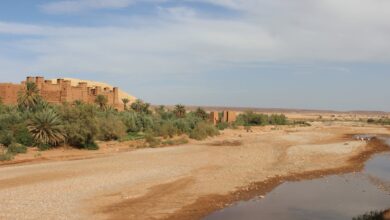The Vision: Streamlining a Nation’s Bureaucracy

Remember that feeling? The one where you’re staring at a seemingly endless queue, clutching a stack of papers, and mentally preparing for a bureaucratic marathon just to get a birth certificate or renew a driver’s license? For many of us, navigating public services has historically been synonymous with patience, persistence, and perhaps a deep sigh or two. But what if that familiar scene started to fade, replaced by a few clicks on a screen, all from the comfort of your home or office?
That’s precisely the future the Egyptian government is actively building with its ambitious ‘Digital Egypt’ platform. It’s more than just an online portal; it’s a foundational shift, aiming to transform how citizens interact with their government, promising efficiency, transparency, and a much-needed breath of fresh air for public service delivery. The news that certain in-person services will soon exclusively move online isn’t just a policy update; it’s a clear signal of intent for a nation truly embracing the digital age.
The Vision: Streamlining a Nation’s Bureaucracy
At its heart, the ‘Digital Egypt’ initiative is about modernization. We’ve all experienced the frustrations of outdated systems – the duplicate forms, the requirement for physical presence for every single step, the sheer time commitment. The Egyptian government, through its Digital Transformation Strategy 2030, recognized that these inefficiencies weren’t just an inconvenience; they were a drag on productivity, citizen satisfaction, and even economic potential.
Counselor Mohamed Al-Homsani, the Cabinet spokesman, articulated this vision clearly, stating the aim is to “improve efficiency and advance nationwide digital transformation.” It’s a goal that resonates deeply with anyone who’s ever wasted a day trekking between government offices. Minister of Communications Amr Talaat’s recent presentation to Prime Minister Mostafa Madbouly highlighted significant progress, underscoring the government’s commitment to accelerating this transition.
What does this look like in practice? The ‘Digital Egypt’ platform, launched in 2020, already offers a staggering array of over 175 online services. Think about that for a moment: civil status documents, processing traffic violations, registering real estate, managing social insurance – services that once demanded significant physical effort and time are increasingly available at your fingertips. This isn’t just about convenience; it’s about reclaiming valuable time for citizens and allowing government resources to be allocated more effectively.
Beyond Convenience: A Catalyst for Growth
The benefits extend far beyond simply cutting down on wait times. A more efficient, transparent public service system can be a powerful catalyst for economic growth. When businesses can register, secure permits, and comply with regulations more easily, it reduces operational costs and encourages investment. For entrepreneurs, the ability to rapidly navigate administrative hurdles means they can focus more on innovation and job creation rather than paperwork.
Furthermore, digital services promote transparency. Online transactions leave a clear digital footprint, making processes less susceptible to irregularities and fostering greater accountability. This builds trust between citizens and their government, a cornerstone for any developing nation aiming for sustainable progress.
Navigating the Digital Divide: Challenges and the Human Element
While the vision is compelling and the benefits are clear, the path to a fully digital public service system isn’t without its complexities. Al-Homsani himself acknowledged a critical point: “many citizens still prefer obtaining essential documents, such as birth certificates and other official papers, in person.” This preference isn’t merely about tradition; it often stems from practical considerations and a deeply ingrained comfort with face-to-face interaction.
One of the primary challenges is the ‘digital divide.’ Not everyone has reliable internet access, owns a smartphone or computer, or possesses the digital literacy required to confidently navigate online platforms. For older generations or those in remote areas, the leap from a physical office to a digital portal can feel daunting, even isolating. It’s a stark reminder that technology, while powerful, must be implemented with a human-centric approach.
Bridging the Gap: Inclusivity in Digital Transformation
For ‘Digital Egypt’ to truly succeed, it must be an inclusive transformation. This means the government will likely need to invest heavily in several areas. Public awareness campaigns are crucial, not just to inform citizens about the new services, but to build trust and demonstrate the ease and security of the platform. Digital literacy programs, offered through community centers or partnerships, can empower those less familiar with technology.
Moreover, a robust support system will be vital. Think dedicated helplines, physical kiosks with assisted services in local government buildings, or mobile outreach units that can help citizens get online. This hybrid approach, where digital is prioritized but human support remains accessible, will be essential during the transition period to ensure no one is left behind. It’s not about forcing everyone online overnight, but rather guiding them towards a more efficient future at a pace that works for the entire population.
Beyond Bureaucracy: The Future of Service in Egypt
The decision to shift certain services exclusively online represents a critical inflection point. It signals a move beyond simply digitizing existing processes to fundamentally rethinking how services are delivered. This isn’t just about mirroring a paper form on a screen; it’s about redesigning the entire interaction to be more intuitive, user-friendly, and efficient from end-to-end. This proactive step helps build momentum, encouraging wider adoption and paving the way for even more advanced digital solutions.
Imagine a future where AI-powered chatbots can answer common queries 24/7, where blockchain technology ensures the immutable security of land records, or where predictive analytics help the government anticipate citizen needs and deliver services before they’re even explicitly requested. While these might sound like distant sci-fi, they are the natural progression of a nation committed to digital transformation. ‘Digital Egypt’ is not merely a platform; it’s a dynamic ecosystem designed to evolve.
This commitment also projects an image of a forward-thinking nation on the global stage. For international investors, a streamlined, transparent government infrastructure signals stability and ease of doing business. For the next generation of Egyptians, growing up with digital-first public services will be the norm, fostering a culture of innovation and technological fluency that will benefit the entire country.
Egypt’s shift towards its ‘Digital Egypt’ platform is more than a technological upgrade; it’s a national statement of intent. It’s an ambitious journey towards a future where interacting with government is less about bureaucratic hurdles and more about seamless access to essential services. There will undoubtedly be challenges, lessons learned, and adjustments made along the way, as with any grand transformation. But by embracing this digital wave, Egypt is not just modernizing its public services; it’s laying a crucial foundation for a more efficient, transparent, and prosperous future for all its citizens. It’s a bold step, and one worth watching closely.





